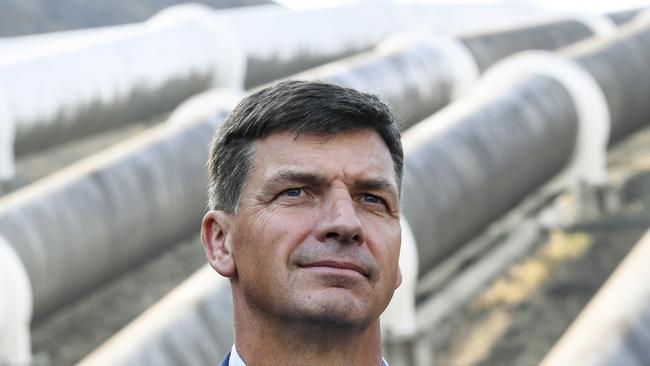AGL’s concerns over power plans
Power giant AGL Energy has expressed concern over Canberra’s implementation of a default market offer.

Power giant AGL Energy has expressed concern over the federal government’s implementation of a default market offer which it warns will risk political interference in determining electricity prices and heighten uncertainty across the sector.
The government will impose new default market offers from July 1, avoiding the need to pass legislation to impose lower power prices, and after the Coalition shelved its “big stick’’ bill for divestment powers to tackle energy market manipulation.
The new price safety net is designed to solve the problem of customers who fail to negotiate better deals with power companies by sticking with their existing electricity providers after their contracts expire.
While power companies have attacked the move — describing it as government re-regulation of the sector-stifling competition, reducing innovation and delivering a benefit to a minority of consumers at the expense of the majority — the government says the industry only has itself to blame by not fixing the problem on its own watch.
But AGL says the Electricity Code governing the default market offer circumvents an agreement already made by the Council of Australian Governments’ Energy Council and hands the Australian Energy Regulator powers to determine annual prices, with its rulings not subject to judicial review.
The government’s approach “is highly likely to exacerbate the political debate on the energy industry and, specifically, on retail energy pricing, with the draft code requiring the AER’s default market offer price determination to be tabled in parliament annually,” AGL’s manager of energy markets regulation Elizabeth Molyneux said in a submission to the government’s draft code on the default market offer regulation.
“The risk of political interference and the likelihood of uncertainty is therefore high.”
However, Energy Minister Angus Taylor said the companies had been given ample time to consider the pricing move.
“The truth of the matter is the loyalty tax needs to go,” Mr Taylor said. “Companies have had enough time — they clearly haven’t done enough — and we are now stepping up. We are listening to their consultation feedback but we will not take a backwards step. By July 1 we will be getting rid of the confusion in the marketplace.”
A draft AER determination shows customers on flat-rate standing offers will save up to $174 a year, those on controlled load tariffs will save up to $218 and business customers $937.
About 14 per cent of customers are on standing offers, prompting warnings that the 86 per cent on better deals could see bills increase.
Mr Taylor has said the government was axing the so-called loyalty tax paid by customers who failed to shop around, delivering savings to tens of thousands of small businesses and up to 750,000 residential customers.
The default price will also become a reference price, which energy companies will have to declare when advertising their standing and market offers.
It will apply in NSW, South Australia and southeast Queensland. It will not apply in Victoria, after the state government introduced its own default price.
A default market price was one of the recommendations of the competition watchdog following its inquiry into retail electricity pricing last year. The Australian Energy Market Commission subsequently warned that a large proportion of the market could be worse off under the default offer.
The Australian Energy Council, a lobby group for the biggest power operators, said it accepted the government’s decision to regulate electricity prices but says the Electricity Code as it stands was not fit for purpose.
“We are concerned that the government has set aside the existing frameworks and prefers to impose price regulation by an untested and unorthodox route — a mandatory industry code, which presents a significant risk of inconsistency with the market’s existing frameworks and the National Energy Retail Law,” AEC director of retail policy Ben Barnes said in its submission.
Submissions on the AER’s default market offer mechanism are due by March 20.


To join the conversation, please log in. Don't have an account? Register
Join the conversation, you are commenting as Logout